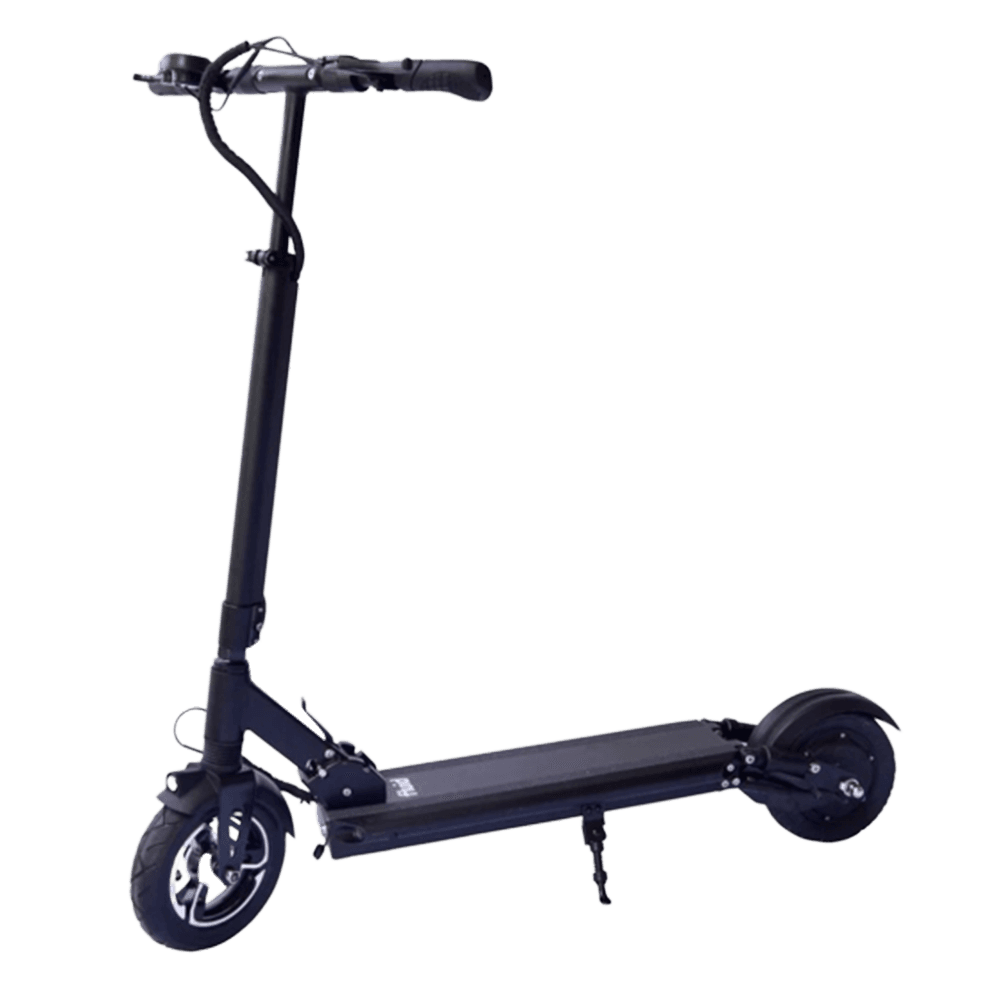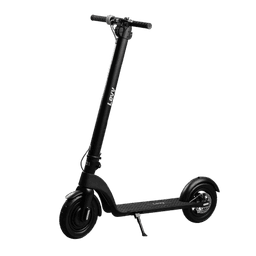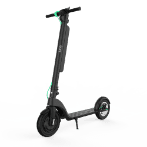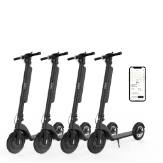Electric scooter comparison
Compare the Apollo Air Pro and the Fluid Freeride Horizon (13 Ah)
Review the specs, pricing, and rider-focused details for the Apollo Air Pro versus the Fluid Freeride Horizon (13 Ah). Every matchup is sourced from Levy's internal database so you can make a confident choice.

Scooter A
Apollo Air Pro
Range 17.7 mi • Top speed 18.8 mph
$799

Scooter B
Fluid Freeride Horizon (13 Ah)
Range 26 mi • Top speed 24 mph
$799
Specification breakdown
| Spec | Apollo Air Pro | Fluid Freeride Horizon (13 Ah) |
|---|---|---|
| Range (mi) | 17.7 mi | 26 mi |
| Top speed (mph) | 18.8 mph | 24 mph |
| Weight (lbs) | 36.8 lbs | 38.4 lbs |
| Motor power (W) | 350 W | 500 W |
| Battery capacity (Wh) | 374 Wh | 624 Wh |
| Brakes | Drum | Drum |
| Tires | Pneumatic | Mixed |
| Waterproof rating | IPX4 | None |
| Suspension | Spring | Dual Spring |
| Price (USD) | $799 | $799 |
Comparing Riding Experiences: Apollo Air Pro vs. Fluid Freeride Horizon (13 Ah) Electric Scooters
When it comes to electric scooters, there are two standouts that have been generating buzz: the Apollo Air Pro and the Fluid Freeride Horizon (13 Ah). Both electric scooters promise an excellent ride, but they have various significant differences that discerning buyers should consider.
Starting off with their power systems, the Apollo Air Pro comes with a 350W motor, providing a top speed of 15.6 mph and a maximum range of 18 miles, slightly lesser than that of the Fluid Freeride Horizon (13 Ah), which boasts a 500W motor and claims a top speed of 25 mph and a range up to 20 miles on a single charge.
When it comes to comfort and stability, the Apollo Air Pro has pneumatic front tire and solid rear tire, while the Fluid Freeride Horizon (13 Ah) uses 8.5-inch pneumatic tires on both front and rear, ensuring a more comfortable ride. The Horizon also has a slightly bigger deck providing better standing area.
As for the braking system, the Apollo Air Pro utilizes both electronic and footbrake, whereas, the Fluid Freeride Horizon (13 Ah) has an advantage of dual brakes - electric and disc, for effective stopping power.
The Fluid Freeride Horizon (13 Ah) takes a slight edge when it comes to overall durability as it weighs 40 lbs and a maximum load of 265 lbs compared to the Air Pro’s 37 lbs weight and 220 lbs rider weight capacity.
The portability factor favors the Apollo Air Pro with its three-second folding mechanism, making it easier to carry when not in use. The Fluid Freeride Horizon (13 Ah) can also be folded, but it has a more complex mechanism.
In sum, the decision to choose either the Apollo Air Pro or the Fluid Freeride Horizon (13 Ah) depends on buyers' specific needs. The Apollo Air Pro may suit those seeking enhanced portability while the Fluid Freeride Horizon (13 Ah) could be the choice for those desiring raw power and better comfort.
Keep researching with Levy
Browse thousands more matchups or reach out to our team for personalized scooter advice.


